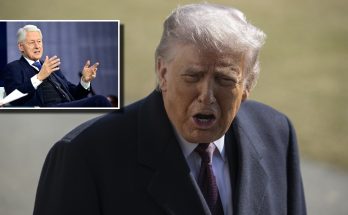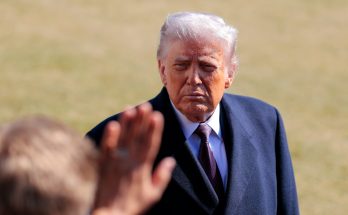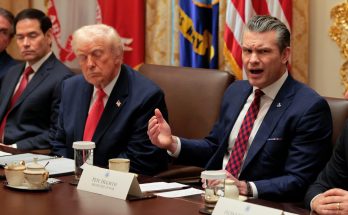House Oversight Committee Chairman James Comer has stated that his inquiry into Joe Biden’s mental condition during his presidency may lead to the possibility of reversing pardons and executive orders that were issued in the final months of his administration.
The Kentucky Republican informed Just the News, No Noise that the evidence collected thus far indicates that the president might not have been entirely cognizant of what he was endorsing — and in numerous instances, he may not have personally signed the documents.
At the heart of the issue is Biden’s regular use of the presidential autopen, a mechanical device that reproduces his signature. Although the autopen has been utilized previously for standard correspondence or non-urgent documents, Comer asserts that its use during Biden’s concluding months — particularly following his poor performance in the June 2024 debate — raises significant legal concerns.
“It is questionable whether it is lawful to employ an autopen on a legal document, but what is indisputable is that if the President of the United States was unaware of what was being signed,” Comer remarked. “Then… that is not legal.”
Comer is of the opinion that his investigation could yield grounds to contest the legitimacy of specific clemency actions and executive measures.
“Our investigation… could serve as evidence in efforts to annul some of those pardons and certain executive orders, due to the frequent use of the autopen… following that debate,” he stated.
Former Harvard Law professor Alan Dershowitz conveyed to Just the News in March that such legal disputes would almost certainly be resolved in court. For legislation passed by Congress, the Constitution explicitly mandates the president’s signature, which he argues could render the use of the autopen problematic. Pardons, while not necessitating a signature under the Constitution, would still be subject to examination if it could be demonstrated that the president did not personally authorize them.
The 2024 debate marked a pivotal moment in Biden’s presidency. On stage, the president appeared disoriented and at times struggled to articulate his thoughts. Even Democratic operatives expressed concern about his performance.
Biden’s challenges were not unfamiliar to his Republican critics. For many years, they have highlighted his heavily scripted public engagements, his stumbling speech, and his frequent lapses in memory. These concerns gained additional significance in February 2025 when Special Counsel Robert Hur, who was investigating Biden’s management of classified documents, stated that Biden’s “poor memory” would likely render him a sympathetic witness in the eyes of a jury. Hur’s report indicated that Biden could not remember the period he served as vice president or the year his son Beau passed away.
Comer’s committee has focused on the decision-making process within the Biden White House during his decline. Former Domestic Policy Council Director Neera Tanden testified that she frequently directed the use of the autopen but had minimal direct interaction with Biden himself. She mentioned that she would send memos to members of Biden’s inner circle for approval and would receive them back signed, without knowing who ultimately authorized them.
“She had limited interaction with President Biden despite holding significant authority,” Comer stated. “Her testimony raises serious questions about who was truly in charge in the Biden White House during the president’s evident decline.”
Several key aides, including Biden’s physician Dr. Kevin O’Connor, former Deputy Chief of Staff Annie Tomasini, and Jill Biden’s chief of staff Anthony Bernal, have declined to respond to the committee’s inquiries — all citing their Fifth Amendment rights. Comer pointed out that O’Connor would not even confirm whether he had ever been instructed to misrepresent the president’s health.
Biden, for his part, has defended his actions since leaving office, informing The New York Times that he “made every decision” regarding pardons. However, the Times reported that in the case of large-scale, categorical pardons, Biden and his aides acknowledged that he did not personally review each individual name.
Comer stated in the report that the combination of sworn testimony, Fifth Amendment pleadings, and Biden’s own admissions leads to a concerning conclusion — that numerous official actions attributed to the president may have been sanctioned without his awareness or approval.
“The individuals within Biden’s inner circle have failed to demonstrate that Joe Biden was aware of what was being signed with his autopen,” Comer remarked. “Approximately half of the individuals we summoned have invoked the Fifth Amendment. When the White House physician is unable to respond to a straightforward inquiry regarding whether he was instructed to deceive, that constitutes quite compelling evidence that we had a president who was not fully engaged, to put it mildly.”
As Comer indicates that legal actions regarding Biden’s late-term decisions are a possibility, the political and constitutional repercussions stemming from the former president’s cognitive decline may still be unfolding.



